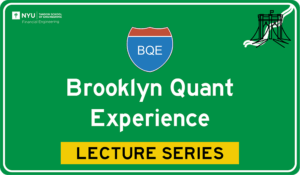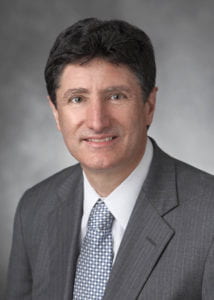 Dear All,
Dear All,
You are cordially invited to the Brooklyn Quant Experience Lecture Series (BQE) on Thursday, September 24th at 6 p.m. on Zoom.
*Please note a meeting password is required for this event.
Meeting ID:971 5155 1289
Password: BQESH
Dr. Steve Heston, Professor of Finance at the University of Maryland, College Park, will give the following talk:
Title:
Option Momentum
Abstract
This paper computes exact returns on equity-V IX option portfolios to investigate momentum in options across different S&P 500 stocks. Stock options with high historical returns continue to outperform options with low returns. This predictability has a quarterly pattern, resembling the pattern of stock momentum found by Heston and Sadka (2008). In contrast to stock momentum, option momentum lasts for up to five years and does not reverse.
The profitability of option momentum is distinct from the profitability of option value, as measured by historical variance divided by current equity-V IX price. It is also not explained by systematic risk, stock characteristics, nor bid-ask spreads.
Bio:
Steve Heston graduated with a BS double major in Mathematics and Economics from the University of Maryland, College Park in 1983. He attended the Graduate School of Industrial Administration and earned an MBA in 1985 followed by a Ph.D. in Finance in 1990. He has held previous faculty positions at Yale, Columbia, Washington University, and the University of Auckland in New Zealand. He has worked in the private sector with Goldman Sachs in Fixed Income Arbitrage and in Asset Management Quantitative Equities. He is known for analyzing options with stochastic volatility and international stock risk.

 Dr. Peter Carr has been chair of the finance and risk engineering department at NYU Tandon School of Engineering for the last four years. He also presently serves as a trustee for the National Museum of Mathematics and WorldQuant University. Previously, he had a 20-year career heading quant groups in finance. Prior to joining the financial industry, Dr. Carr was a finance professor at Cornell University, after obtaining his Ph.D. from UCLA in 1989. He has more than 90 publications in academic and industry-oriented journals and serves as an associate editor for eight journals related to mathematical finance. He was selected as Quant of the Year by Risk Magazine in 2003 and Financial Engineer of the Year by IAQF/Sungard in 2010.
Dr. Peter Carr has been chair of the finance and risk engineering department at NYU Tandon School of Engineering for the last four years. He also presently serves as a trustee for the National Museum of Mathematics and WorldQuant University. Previously, he had a 20-year career heading quant groups in finance. Prior to joining the financial industry, Dr. Carr was a finance professor at Cornell University, after obtaining his Ph.D. from UCLA in 1989. He has more than 90 publications in academic and industry-oriented journals and serves as an associate editor for eight journals related to mathematical finance. He was selected as Quant of the Year by Risk Magazine in 2003 and Financial Engineer of the Year by IAQF/Sungard in 2010.